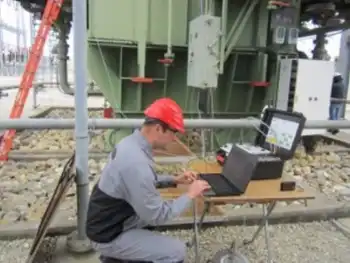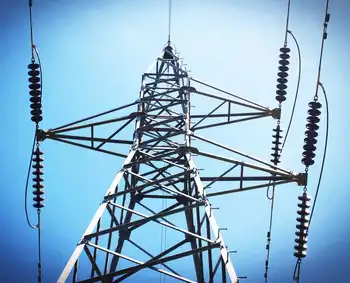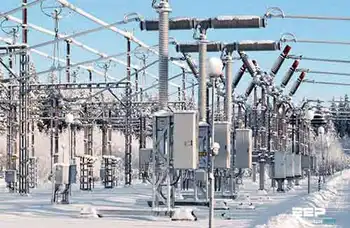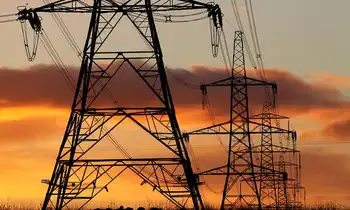Eviation Collapse underscores electric aviation headwinds, from Alice aircraft battery limits to FAA/EASA certification hurdles, funding shortfalls, and leadership instability, reshaping sustainability roadmaps for regional airliners and future zero-emission flight.
Key Points
Eviation Collapse is the 2025 shutdown of Eviation Aircraft, revealing battery, certification, and funding hurdles.
✅ Battery energy density limits curtailed Alice's range
✅ FAA/EASA certification timelines delayed commercialization
✅ Funding gaps and leadership churn undermined execution
The electric aviation industry was poised to revolutionize the skies through an aviation revolution with startups like Eviation Aircraft leading the charge to bring environmentally friendly, cost-efficient electric airplanes into commercial use. However, in a shocking turn of events, Eviation has faced an abrupt collapse, signaling challenges that may impact the future of electric flight.
Eviation’s Vision and Early Promise
Founded in 2015, Eviation was an ambitious electric airplane startup with the goal of changing the way the world thinks about aviation. The company’s flagship product, the Alice aircraft, was designed to be an all-electric regional airliner capable of carrying up to 9 passengers. With a focus on sustainability, reduced operating costs, and a quieter flight experience, Alice attracted attention as one of the most promising electric aircraft in development.
Eviation’s aircraft was aimed at replacing small, inefficient, and environmentally damaging regional aircraft, reducing emissions in the aviation industry. The startup’s vision was bold: to create an airplane that could offer all the benefits of electric power – lower operating costs, less noise, and a smaller environmental footprint. Their goal was not only to attract major airlines but also to pave the way for a more sustainable future in aviation.
The company’s early success was driven by substantial investments and partnerships. It garnered attention from aviation giants and venture capitalists alike, drawing support for its innovative technology. In fact, in 2019, Eviation secured a deal with the Israeli airline, El Al, for several aircraft, a deal that seemed to promise a bright future for the company.
Challenges in the Electric Aviation Industry
Despite its early successes and strong backing, Eviation faced considerable challenges that eventually contributed to its downfall. The electric aviation sector, as promising as it seemed, has always been riddled with hurdles – from battery technology to regulatory approvals, and compounded by Europe’s EV slump that dampened clean-transport sentiment, the path to producing commercially viable electric airplanes has proven more difficult than initially anticipated.
The first major issue Eviation encountered was the slow development of battery technology. While electric car companies like Tesla were able to scale their operations quickly during the electric vehicle boom due to advancements in battery efficiency, aviation technology faced a more significant obstacle. The energy density required for a plane to fly long distances with sufficient payload was far greater than what existing battery technology could offer. This limitation severely impacted the range of the Alice aircraft, preventing it from meeting the expectations set by its creators.
Another challenge was the lengthy regulatory approval process for electric aircraft. Aviation is one of the most regulated industries in the world, and getting a new aircraft certified for flight takes time and rigorous testing. Although Eviation’s Alice was touted as an innovative leap in aviation technology, the company struggled to navigate the complex process of meeting the safety and operational standards required by aviation authorities, such as the FAA and EASA.
Financial Difficulties and Leadership Changes
As challenges mounted, Eviation’s financial situation became increasingly precarious. The company struggled to secure additional funding to continue its development and scale operations. Investors, once eager to back the promising startup, grew wary as timelines stretched and costs climbed, amid a U.S. EV market share dip in early 2024, tempering enthusiasm. With the electric aviation market still in its early stages, Eviation faced stiff competition from more established players, including large aircraft manufacturers like Boeing and Airbus, who also began to invest heavily in electric and hybrid-electric aircraft technologies.
Leadership instability also played a role in Eviation’s collapse. The company went through several executive changes over a short period, and management’s inability to solidify a clear vision for the future raised concerns among stakeholders. The lack of consistent leadership hindered the company’s ability to make decisions quickly and efficiently, further exacerbating its financial challenges.
The Sudden Collapse
In 2025, Eviation made the difficult decision to shut down its operations. The company announced the closure after failing to secure enough funding to continue its development and meet its ambitious production goals. The sudden collapse of Eviation sent shockwaves through the electric aviation sector, where many had placed their hopes on the startup’s innovative approach to electric flight.
The failure of Eviation has left many questioning the future of electric aviation. While the industry is still in its infancy, Eviation’s downfall serves as a cautionary tale about the challenges of bringing cutting-edge technology to the skies. The ambitious vision of a sustainable, electric future in aviation may still be achievable, but the path to success will require overcoming significant technological, regulatory, and financial obstacles.
What’s Next for Electric Aviation?
Despite Eviation’s collapse, the electric aviation sector is far from dead. Other companies, such as Joby Aviation, Vertical Aerospace, and Ampaire, are continuing to develop electric and hybrid-electric aircraft, building on milestones like Canada’s first commercial electric flight that signal ongoing demand for green alternatives to traditional aviation.
Moreover, major aircraft manufacturers are doubling down on their own electric aircraft projects. Boeing, for example, has launched several initiatives aimed at reducing carbon emissions in aviation, while Harbour Air’s point-to-point e-seaplane flight showcases near-term regional progress, and Airbus is testing a hybrid-electric airliner prototype. The collapse of Eviation may slow down progress, but it is unlikely to derail the broader movement toward electric flight entirely.
The lessons learned from Eviation’s failure will undoubtedly inform the future of the electric aviation sector. Innovation, perseverance, and a steady stream of investment will be critical for the success of future electric aircraft startups, as exemplified by Harbour Air’s research-driven electric aircraft efforts that highlight the value of sustained R&D. While the dream of electric planes may have suffered a setback, the long-term vision of cleaner, more sustainable aviation is still alive.
Related News












